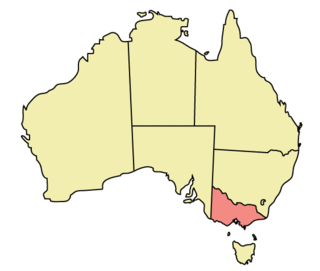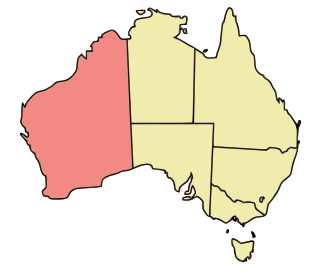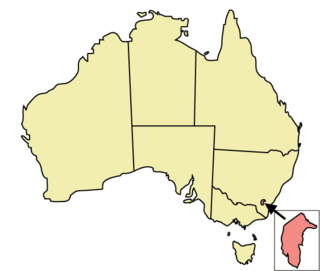
Peter Craig Dutton is an Australian politician and former police detective serving as the current Leader of the Opposition, holding office as the leader of the Liberal Party of Australia since May 2022. He has been the member of Parliament (MP) for the division of Dickson since 2001. Dutton previously served as the minister for Defence from 2021 to 2022 and the minister for Home Affairs from 2017 to 2021. He held various ministerial positions from 2004 to 2022 in the governments of Howard, Abbott, Turnbull and Morrison.

GetUp! is an independent progressive Australian political activist group. It was launched in August 2005 to encourage Internet activism in Australia, though it has increasingly engaged in offline community organising.

Alexander George Hawke is an Australian politician who served as Minister for Immigration, Citizenship, Migrant Services and Multicultural Affairs from 2020 to 2022 in the Morrison government. Hawke has served as Member of Parliament (MP) for Mitchell since 2007, representing the Liberal Party.

Lesbian, gay, bisexual, transgender and queer (LGBTQ) rights in Australia rank among the highest in the world; having significantly advanced over the latter half of the 20th century and early 21st century. Opinion polls and the Australian Marriage Law Postal Survey indicate widespread popular support for same-sex marriage within the nation. Australia in 2018, in fact was the last of the Five Eyes set of countries - that consisted of namely Canada (2005), New Zealand (2013), United Kingdom (2014) and the United States (2015) to legalize same-sex marriage. A 2013 Pew Research poll found that 79% of Australians agreed that homosexuality should be accepted by society, making it the fifth-most supportive country surveyed in the world. With its long history of LGBTQ activism and annual Gay and Lesbian Mardi Gras festival, Sydney has been named one of the most gay-friendly cities in the world.
Same-sex marriage has been legal in Australia since 9 December 2017. Legislation to allow it, the Marriage Amendment Act 2017, passed the Parliament of Australia on 7 December 2017 and received royal assent from Governor-General Peter Cosgrove the following day. The law came into effect on 9 December, immediately recognising overseas same-sex marriages. The first same-sex wedding under Australian law was held on 15 December 2017. The passage of the law followed a voluntary postal survey of all Australians, in which 61.6% of respondents supported legalisation of same-sex marriage.

Zdenko Matthew "Zed" Seselja is an Australian politician who was a Senator for the Australian Capital Territory from 2013 to 2022, representing the Liberal Party. He was the Minister for International Development and the Pacific in the Morrison government from December 2020 to May 2022, and previously served as an assistant minister in the Morrison and Turnbull governments since 2016.

Adam Paul Bandt is an Australian politician and former industrial lawyer who is the leader of the Australian Greens and federal MP for Melbourne. Previously, he served as co-deputy leader of the Greens from 2012 to 2015 and 2017 to 2020. He was elected leader following the resignation of Richard Di Natale in February 2020.

Lesbian, gay, bisexual, and transgender (LGBT) rights in Queensland have advanced significantly from the late 20th century onwards, in line with progress on LGBT rights in Australia nationally. 2019 polling on gay rights consistently showed that even in regional areas, Queensland is no more conservative about the subject than any other states.

Lesbian, gay, bisexual, and transgender (LGBT) people in the Australian state of New South Wales have most of the same rights and responsibilities as non-LGBT people.

The Australian state of Victoria is regarded as one of the country's most progressive jurisdictions with respect to the rights of lesbian, gay, bisexual, and transgender (LGBTQ) people. Victoria is the only state in Australia, that has implemented a LGBTIQA+ Commissioner.

This article details the history of the LGBTQ rights movement in Australia, from the colonial era to the present day.

Lesbian, gay, bisexual, and transgender (LGBT) people in the Australian state of Tasmania have the same legal rights as non-LGBT people. Tasmania has a transformative history with respect to the rights of LGBT people. Initially dubbed "Bigots' Island" by international media due to intense social and political hostility to LGBT rights up until the late 1990s, the state has subsequently been recognised for LGBT law reforms that have been described by activists such as Rodney Croome as among the most extensive and noteworthy in the world. Tasmania's criminal penalties for homosexual activity were the harshest in the Western world when they were repealed in 1997. It was the last Australian jurisdiction to decriminalise homosexuality after a United Nations Human Rights Committee ruling, the passage of federal sexual privacy legislation and a High Court challenge to the state's anti-homosexuality laws. Following decriminalisation, social and political attitudes in the state rapidly shifted in favour of LGBT rights ahead of national trends with strong anti-LGBT discrimination laws passed in 1999, and the first state relationship registration scheme to include same-sex couples introduced in 2003. In 2019, Tasmania passed and implemented the world's most progressive gender-optional birth certificate laws. In July 2023, the Tasmanian government officially included and also added "asexual or asexuality".

Lesbian, gay, bisexual and transgender (LGBTQ) rights in Western Australia have seen significant progress since the beginning of the 21st century, with male sex acts legal since 1990 and the state parliament passing comprehensive law reforms in 2002. The state decriminalised male homosexual acts in 1990 and was the first to grant full adoption rights to LGBT couples in 2002.

The Australian Capital Territory (ACT) is one of Australia's leading jurisdictions with respect to the rights of lesbian, gay, bisexual, and transgender (LGBT) people. The ACT has made a number of reforms to territory law designed to prevent discrimination of LGBTQ people; it was the only state or territory jurisdiction in Australia to pass a law for same-sex marriage, which was later overturned by the High Court of Australia. The Australian Capital Territory, Victoria, New South Wales and Queensland are the only jurisdictions within Australia to legally ban conversion therapy on children. The ACT's laws also apply to the smaller Jervis Bay Territory.
Tony Briffa is a Maltese-Australian politician who is notable for being the world's first known intersex and non-binary mayor and public officeholder.

Intersex Human Rights Australia (IHRA) is a voluntary organisation for intersex people that promotes the human rights and bodily autonomy of intersex people in Australia, and provides education and information services. Established in 2009 and incorporated as a charitable company in 2010, it was formerly known as Organisation Intersex International Australia, or OII Australia. It is recognised as a Public Benevolent Institution.
This article provides details on candidates for the 2015 New South Wales state election, held on 28 March 2015.

The 2019 New South Wales state election was held on Saturday 23 March 2019 to elect the 57th Parliament of New South Wales, including all 93 seats in the Legislative Assembly and 21 of the 42 seats in the Legislative Council. The election was conducted by the New South Wales Electoral Commission (NSWEC).
The history of same-sex marriage in Australia includes its express prohibition by the Howard government in 2004 and its eventual legalisation by the Parliament in December 2017. Although a same-sex marriage law was passed by the Australian Capital Territory in 2013, it was struck down by the High Court on the basis of inconsistency with federal law. The Court's decision closed the possibility of concurrent state or territory laws that would allow same-sex marriage where federal law did not. A law legalising same-sex marriage passed the Parliament on 7 December 2017 and received royal assent the following day.
A number of politicians, public figures, media outlets, businesses and other organisations endorsed voting either in favour or against same-sex marriage during the Australian Marriage Law Postal Survey.






























